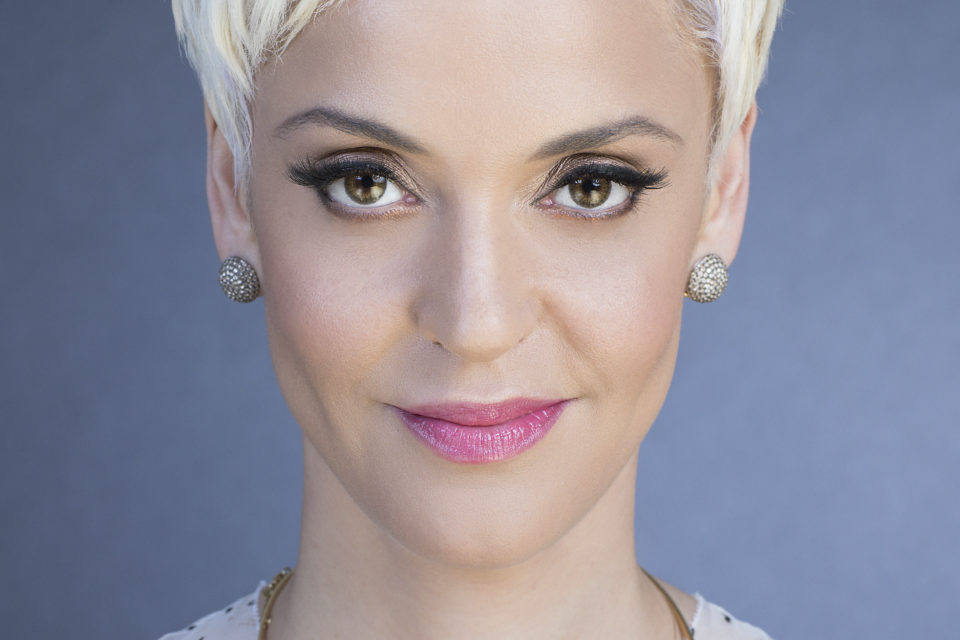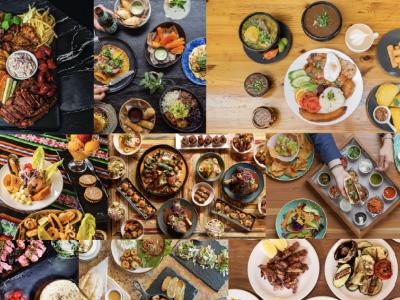Mariza loves to sing. And she loves to talk too. Interviewing her is as pleasant as listening to her singing: it’s as if I can hear the echoes of her songs in her words. Perhaps it’s because Mariza has sung for as long as she has talked.
“I’ve sung Fado all my life. But I can’t remember a moment where I decided ‘I will sing Fados’ ” Mariza declares, admitting “I only decided to record a Fado album to thank my father, who put me to sing when I was young in the small taberna we had in Mouraria. That was how it happened. I never thought I would become a Fado singer. I wanted to give him a gift of the highest quality I could. But I did not have to worry about critics or reviews…and the result was the one we all know.”
This was almost 20 years ago, in 2001, when Mariza says no record label would publish a Fado album in Portugal. Indeed Portuguese labels rejected her first album and it was the Dutch label World Connection that picked up Fado em Mim and decided to distribute it. It ended up being released in 36 countries Today, all Portuguese labels have at least one Fado singer in their catalogues, arguably thanks to its success.
In retrospect, Fado em Mim changed the musical panorama in Portugal and provoked a turnaround in the genre’s history. While Fado was played in traditional neighbourhoods, nobody played it on the radios, there were no new recording. Fado was considered a thing of the past, recorded by deceased legends such as Amalia Rodrigues. Nobody who looked young and funky like Mariza was supposed to sing it. And so it took a foreign label for Fado to sell 120000 copies in Portugal – considered a booming success for this market. Perhaps this is why Mariza calls it her “crown jewel”.
Tradition meets Modernity
In Mariza’s first album it is very clear the homage she is paying to Amalia Rodrigues, probably the greatest name in Fado. We also can hear the remnants of Fernando Farinha, Fernando Maurico, Carlos do Carmo, among many other Fadistas. I ask about who else influenced her as Fadista.
Mariza puts me straight immediately: “I am not a Fadista. I’m a Cantadeira de Fado.”
Is there a difference? I ask
“Where I grew up, everybody sang Fados. But ‘Fadista’ was a word for those masters in this art. To call myself a ‘Fadista’ would be like self-praising. And this is something that I would never do. If you want to call me Fadista I will honorably accept it, this will be an immense praise for me and my work. But, myself, I would not call me a Fadista.”
Well, in that case, I continue calling her a Fadista.
In terms of ‘influences’ she explains that Fado is an oral tradition, transmitted from elders to youngers. “Today there is the Fado Museum in Lisbon, where one can study and look for documents and historical registers, but in the past, there was nothing like that,” She says. “All influences I had come from those voices that I listened to on vinyl albums, in the streets of my neighborhood, in my parents taberna. Those were the great influences I had, the great teachers that transmitted to me the love to this music.”
I point out that, as a Brazilian, I can hear also some ‘Brasilianity’ in her Fados…
“I love Brazilian music”, is Mariza’s first reaction. “ I had an uncle who lived in Brazil for many years and used to bring my mother Albums from Brazil; Roberto Carlos, Clara Nunes – how I loved that women! - Angela Maria, Alcione, Caetano, Elis Regina – I a crazy about Elis! I grew up listening to Brazilian Music. My mother showed me a musical world that my father didn't have.”
So, I point out, Fado came through your father and Brazilian music through your mother
“Ah not only Brazilian music,” Mariza says. “Also music from Cabo Verde, Angola, Mozambique, from the Antilhas. Perhaps because my mother is African, she opened my ears to her diverse musical culture. Perhaps all these influences come out. I don’t think ‘let’s put something here that sounds more Brazilian; or let me introduce something here that sounds more African.’ No. Those influences simply manifest themselves in my music, because they are part of me.”
You’ve been cannibalized musically by all those influences, I add.
She laughs. “This is funny and yes, it makes sense…
When I was teenager. I met the Cabo Verde singers Tito Paris, Dany Silva, who lived in Lisbon, among others, thanks to my cousin, also a musician, who introduced her to this community. At that time, African music was not well appreciated in Lisbon – today it is, but not at that time when I was 16. I went with my cousin to a pub in Lisbon called “Pilãozinho”. There I met all those fantastic African singers and musicians. I sung with them, I learned from them, I lived that music.”
It would seem that Mariza was never afraid of approaching the underculture or the unpopular, whether it was Portugal's immigrant communities or the repressed voice of Fado.
“People had a stereotypical idea about Fado. People always related fado to singers dressing dark clothes, with long hair and a shawl over their head, and a sad expression.” She explains. “This did not fit into a Portugal that was changing, becoming more cosmopolitan and trying to be part of the XXI century. Fado, as an urban musical form from Lisbon, was not adapting to a city in transformation. It was a sort of dilemma between tradition and modernity. And Fado was associated as a symbol of the past, that had not evolved.”
Mariza changed people’s perception of the genre: “I am a person who conserves the traditions of Fado, but dark clothes and long hair don’t suit me. Anyway, I am what I am. I interpret Fado on my own way. I think this made people see Fado diferently.”
Mariza revitalized Fado in a way no one was expecting; her perception of the stage, her care with fashion, and her interpretation of the music: “I don’t restrict my Fado to the traditional guitar and Portuguese viola. As with every genre – bossa-nova, tango, pop – the most important thing is not what instruments are used but that they are played by great musicians, with great quality.”
Back to Brazilian music, she remembers also many Brazilian musicians who went to Portugal to sing in pubs or restaurants. “I spent so much time with them, I decided to go to Brazil and there, everybody thought I was Brazilian too.”
I confess to her that listening to her Fados, many times I caught myself thinking how Brazilian they sound. Again, she laughs her pleasant laugh.
Perhaps what also gives the Brazilian flavour to Mariza, is the fact that since 2004 Mariza has worked with the famous Brazilian arranger Jacques Morelenbaum, who has worked several of Brazil's top musicians such as Milton Nascimento, Tom Jobim, Caetano Veloso, Gal Costa, Ivan Lins, Marisa Monte, Beto Guedes, Carlinhos Brown, and also with Cesária Évora, and Dulce Pontes. “Before I worked with Morelembaum I hated the work at the studio . He taught me how pleasant and comfortable it could be. It was this revelation that produced ‘Transparente’. An album, according to her, iconic.
I mention the presence of poetry in Mariza's Fados, Florbela Espanca, David Mourão Ferreira, Fernadno Pessoa, Gil do Carmo, which all have their place...
“I love Fernando Pessoa and Florbela Espanca, but I also look for new poets, for poems that talk about comtemporary issues, that are moving with society. Fado is made with a special metric, a particular structure. The understanding of this metric must be conserved and kept alive in new poems. Myself, when I see a poem I can tell if it would make a good Fado or not, whether the expression of Fado is present there. And this is not to do with the quality of the poem itself. It can be a very good poem of a wonderful poet, but that doesn’t find its expression in a Fado”.
Mariza decides what she sings and records. “I only sings what I like. To sing, for me is a sort of selfish act. I only sing what represents me, my truth. The best musician in the world can come to me with a music, if I don't like, if I don't fell, I therefore don't sing. I can only touch people when I am singing because I am honestly fell my expression, my truth, in the music I am singing.”
With her latest album, 'Mariza', I suggest that there is a paradox when she says that to record an album is a selfish act, because there is also an element of altruism in sharing her individuality with everybody through the music. On a personal level, I am referring to songs of this new album, especially ‘É mentira’ and ‘Semente viva’ and share with her how they touched me in diverse ways. Even without thinking or worrying about other people’s reaction, even being a “selfish act”, in her own words, she altruistically helps her listeners to express also their own feelings. She takes a long breath and keep some seconds in silence. She neither agrees or disagree.
Our conversation is arriving to an end. This interpreter of life talks with the same passion she brings to her singing. I have a lot more to ask her, but I think that I will find the answers in her Fados.
Mariza will be performing at the Royal Festival Hall tomorrow, Saturday 17 Nov. Tickets here https://serious.org.uk/events/mariza-1















